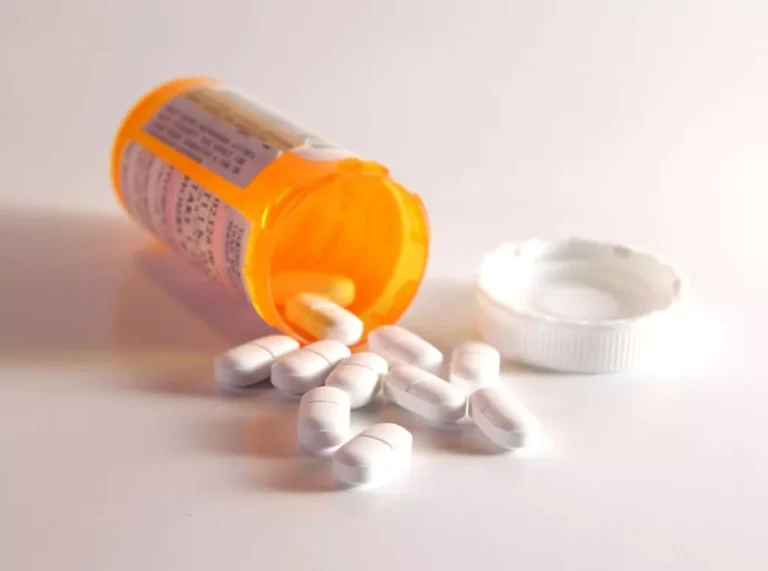
Intoxication is responsible for short-term effects such as blurred vision. Once a person recovers from intoxication, their vision should return to normal. Alcohol addiction is a disease characterized by a strong craving for alcohol, and continued use despite a negative impact on health, interpersonal relationships, and ability to work. If the person blurry vision after drinking alcohol stops drinking, they will experience withdrawal symptoms. As a dual diagnosis treatment center, we are committed to addressing any mental health disorders alongside alcohol addiction. By treating the whole person and not just the symptoms, we strive to create a lasting, transformative experience for each individual who walks through our doors.
- The effects of alcohol on eye health range from temporary discomfort to permanent damage.
- However, for people with pre-existing eye conditions like glaucoma, the temporary rise in IOP may be more significant and potentially exacerbate their condition.
- Alcohol causes your body to dehydrate, which in turn causes your organs (which includes your skin) to ‘fight back’ by retaining water – which may lead to bags under eyes.
- Another problem that excessive drinking leads to is migraine headaches, as the eye becomes sensitive to light; the result is pain.
- A person can become intoxicated even with moderate drinking and may experience temporary disturbances to their vision.
- Drinking can cause short- and long-term challenges with eye health and vision, including a condition known as dry eye disease (DED).
- Though these aren’t eye diseases, the first signs of these conditions are often seen in the eyes as part of a comprehensive eye exam.
Pregnancy and vision – how can it affect eyesight?
- The helpline at AddictionResource.net is available 24/7 to discuss the treatment needs of yourself or a loved one.
- During this time, a person may do things that they do not remember later.
- Tears are essential for maintaining eye comfort and health, as they help to lubricate the eyes, wash away debris, and prevent infections.
- Your muscles might not move as effectively while you are under the influence of alcohol.
- If you would like to enjoy the full guide Dogs experience, please ensure your browser is updated to the latest version.
After drinking, tears can contain traces of alcohol, which can further trigger inflammation and cause damage to the eyes. If you regularly consume alcohol and dry eyes have become an issue, it may have to do with alcohol’s inflammatory and dehydrating properties. The dry air https://ecosoberhouse.com/ in heated rooms in winter or air-conditioned rooms in summer may be sufficient to cause dry eye disease symptoms. People who wear contact lenses tend to be more at risk for developing dry eye disease. In addition, alcohol is a diuretic which may decrease tear secretion.
- Even after you stop drinking, you may still be under the effects of dehydration, and DED changes from regular alcohol use don’t typically go away the moment you stop drinking.
- This dehydration extends to your eyes, accelerating the symptoms of dry eye syndrome (itchiness, a burning sensation, blurry vision, watery eyes etc.).
- If you have any eye problems you worry may be related to drinking, talk to your eye doctor.
- Alcohol affects every body system, so it can cause health problems throughout the body.
- If you find your eyelids twitch on a regular basis, it may be because of stress, lack of sleep, too much caffeine or a vitamin deficiency.
- Inpatient treatment provides a structured, supportive environment where you can focus on your recovery without distractions or triggers.
- With our individual therapy, you will receive 50 one-on-one sessions in just 35 days.
Long-term damage
- However, simply reducing alcohol intake may not be enough to prevent geographic atrophy.
- You might be wise in limiting your consumption of alcohol to special occasions, dinners, and celebrations.
- An Optometry and Vision Science study found that moderate drinking may have a protective effect against cataracts.
- 35-days of effective integration of customized quality therapy reconnected my mind, body, spirit, and I am worth it!
- That’s a common eye condition where the eye’s lens becomes cloudy and obscures vision.
However, simply reducing alcohol intake may not be enough to prevent geographic atrophy. Instead, eye floaters are usually a common and harmless condition resulting from changes in the vitreous, a gel-like substance that fills the back of the eye. This expansion, especially in the conjunctiva (the clear tissue over the white part of the eyes), makes blood vessels more visible, causing red or bloodshot eyes.
Possible long-term effects on eyes
Alcohol affects the eyes directly, for example, dilating blood vessels. Since our eyes and brain work together to produce the images we see, alcohol can affect vision. Long-term, alcohol can interfere with the absorption of the nutrients we need for good eye health, such as vitamin A. To maintain healthy eyes and overall health, reduce your consumption of alcohol and make sure you stay hydrated. If you’re experiencing dry eye symptoms, find an eye doctor at MyDryEye for a proper diagnosis and treatment plan. This usually subsides over a short amount of time once a person stops drinking.

Is the Redness in My Eyes Caused by Alcohol?
But it is the long-term effects of excessive alcohol consumption you should be more concerned with. The effect of alcohol on your eyes and vision depends on many factors, including how much, how often and even what you drink. It can have both short- and long-term visual effects, including blurry vision, double vision and dry eye. In extreme cases, prolonged alcohol abuse and subsequent withdrawal can lead to severe conditions such as optic neuropathy and optic atrophy. Optic neuropathy refers to damage to the optic nerve, which can cause vision loss.

While it may not be possible to completely eliminate the effects of alcohol on your vision, there are steps you can take to minimize its impact. They may also be able to point you to resources to help you cut back or quit drinking to help you improve the health of your eyes and your overall well-being. Drinking large amounts of alcohol may temporarily but significantly increase the size of your pupils, though effects can vary from person to person. This condition involves changes to the vitreous humour, the gel-like substance inside the eye.
